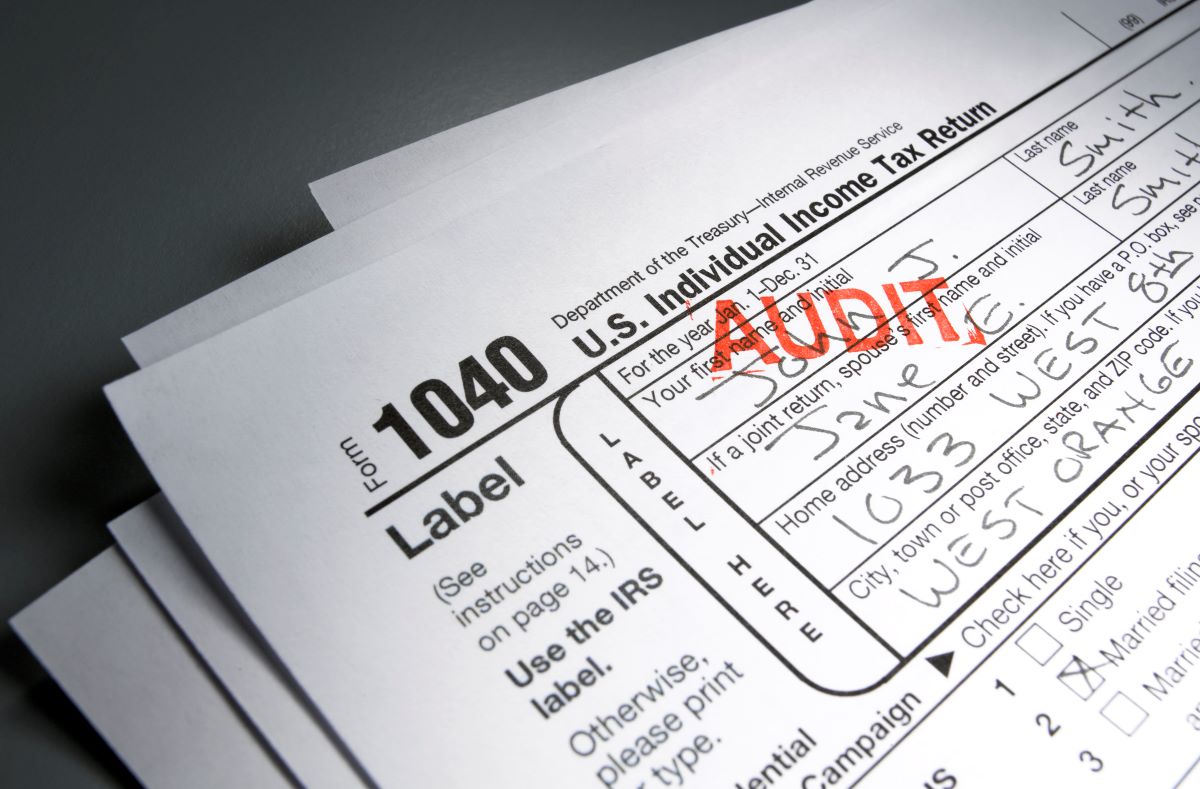

Finance
How Much Do Bank Tellers Make At Credit Unions
Modified: January 15, 2024
Discover the average salary of bank tellers in credit unions and explore the financial opportunities in this field
(Many of the links in this article redirect to a specific reviewed product. Your purchase of these products through affiliate links helps to generate commission for LiveWell, at no extra cost. Learn more)
Table of Contents
Introduction
Welcome to the world of banking and finance, where bank tellers play a crucial role in providing excellent customer service and ensuring smooth operations at financial institutions. If you’re considering a career as a bank teller or wondering how much bank tellers make at credit unions, you’ve come to the right place.
Bank tellers are the friendly faces you encounter when you visit a bank or credit union. They handle various financial transactions, such as deposits, withdrawals, and check-cashing, while maintaining accuracy and confidentiality. Bank tellers also assist customers with inquiries, provide account information, and promote banking products and services.
Now, let’s focus on bank tellers’ salaries specifically at credit unions. Credit unions are member-owned, not-for-profit financial institutions that offer similar services to banks. However, credit unions operate on a different principle, where profits are returned to members in the form of higher interest rates on savings accounts and lower interest rates on loans.
When it comes to determining how much bank tellers make at credit unions, it’s important to consider various factors that can influence their salaries. These factors include experience, education, location, and the specific credit union’s compensation structure. Additionally, credit unions often offer competitive benefits and perks to attract and retain talented bank tellers.
In this article, we’ll delve into the average salary range for bank tellers at credit unions, explore the unique aspects of credit unions, and discuss the factors that can impact bank teller salaries. Whether you’re interested in pursuing a career in banking or simply curious about the compensation in this profession, read on to discover everything you need to know about how much bank tellers make at credit unions.
Bank Teller Job Description
Bank tellers play a crucial role in the day-to-day operations of financial institutions. They are the frontline representatives who interact with customers and handle various financial transactions. Let’s explore the key responsibilities and duties of a bank teller:
- Customer Service: Bank tellers provide excellent customer service by greeting customers, answering inquiries, and resolving issues or complaints. They ensure a friendly and professional atmosphere for customers and strive to meet their financial needs.
- Financial Transactions: Bank tellers process a range of financial transactions, including deposits, withdrawals, check-cashing, loan payments, and fund transfers. They must accurately handle cash and maintain proper documentation for each transaction.
- Account Management: Bank tellers assist customers in managing their accounts. This may involve updating personal information, ordering checks or debit cards, and helping customers understand their account statements or online banking services.
- Sales and Promotion: Bank tellers often have sales goals and are responsible for promoting banking products and services to customers. They may pitch credit cards, loans, savings accounts, or other financial offerings, based on customers’ needs and eligibility.
- Security and Compliance: Bank tellers adhere to strict security and compliance protocols to protect both the financial institution and its customers. They follow procedures to prevent fraud, identity theft, and money laundering, and may report suspicious activities.
- Technology Proficiency: Bank tellers are proficient in using banking software and technology. They must be comfortable navigating computer systems, processing online transactions, and troubleshooting basic technical issues.
- Teamwork: Bank tellers collaborate with colleagues to ensure efficient branch operations. They may assist in balancing cash drawers, ordering currency or coins, and supporting fellow tellers during peak times or absences.
Bank tellers require strong communication and interpersonal skills to build rapport with customers and deliver exceptional service. They must also possess attention to detail, mathematical aptitude, and the ability to work accurately and efficiently in a fast-paced environment.
Now that you have a clear understanding of the bank teller job description, let’s delve into the average salary range for bank tellers at credit unions.
Average Salary of Bank Tellers
When it comes to determining the average salary of bank tellers, several factors come into play, including experience, location, and the type of financial institution. According to the U.S. Bureau of Labor Statistics, as of May 2020, the median annual wage for bank tellers was $31,230, with the lowest 10% earning less than $25,500 and the highest 10% earning more than $42,390.
It’s important to note that these figures are based on bank tellers working in all types of financial institutions, including commercial banks, savings institutions, and credit unions. However, the specific salary range for bank tellers at credit unions can vary.
Credit unions tend to offer competitive salaries to attract and retain skilled tellers. According to recent surveys and industry data, the average salary for bank tellers at credit unions typically falls within the range of $25,000 to $35,000 per year. However, this can vary based on factors such as geographical location, years of experience, and the size of the credit union.
Entry-level bank tellers at credit unions may start at the lower end of the salary range, while those with several years of experience or specialized skills may earn salaries closer to the higher end. Additionally, some credit unions may offer performance-based incentives or bonuses to reward exceptional customer service or meet sales targets.
It’s important to keep in mind that salary is not the sole determinant of job satisfaction or overall compensation. Bank tellers at credit unions may also enjoy a range of benefits and perks that enhance their overall package.
Now that we have an understanding of the average salary range for bank tellers, let’s explore the unique aspects of credit unions and how they may affect bank teller salaries.
The Role of Credit Unions
Credit unions play a unique and important role in the financial services industry. Unlike traditional commercial banks, credit unions are member-owned, not-for-profit financial cooperatives. Their primary goal is to serve their members’ financial needs and provide affordable financial services.
One key aspect of credit unions is their cooperative structure. Members of a credit union are also its owners, which means they have a say in the institution’s operations and policies. This cooperative model fosters a sense of community and promotes a customer-centric approach to banking.
Because credit unions are not-for-profit, their focus is on providing value to their members rather than maximizing profits. This often translates into lower fees, competitive interest rates on loans, and higher interest rates on savings and investment accounts. Credit unions also tend to prioritize personalized customer service and community involvement.
Due to their cooperative nature, credit unions may have a smaller branch network compared to larger commercial banks. However, this can also mean a more intimate and personal banking experience for customers, with a greater emphasis on building relationships.
In terms of the role of credit unions in relation to bank tellers, the focus remains on delivering exceptional customer service and meeting members’ financial needs. Bank tellers play a crucial role in building and maintaining these member relationships, as they are often the first point of contact for members visiting the credit union.
Bank tellers at credit unions are expected to uphold the cooperative values of the institution, providing a warm and welcoming environment for members. They aim to go above and beyond to address members’ financial inquiries, offer personalized assistance, and promote credit union products and services that best suit their needs.
The cooperative structure and member-centric approach of credit unions can create a unique work environment for bank tellers. It often fosters a sense of community among employees and members, and bank tellers may feel a stronger connection to the credit union’s mission and the members they serve.
Now that we understand the role of credit unions and their cooperative nature, let’s explore the factors that can affect bank teller salaries specifically at credit unions.
Factors Affecting Bank Teller Salaries at Credit Unions
When it comes to determining the salaries of bank tellers at credit unions, several factors come into play. Understanding these factors can shed light on the range of salaries and help bank tellers and job seekers better navigate the industry. Here are some key factors that can influence bank teller salaries at credit unions:
- Experience: One of the most significant factors affecting bank teller salaries is the level of experience. As with any profession, bank tellers with more years of experience tend to earn higher salaries. Credit unions may offer competitive salary increases or opportunities for career growth based on tenure.
- Geographical Location: The location of the credit union can also impact bank teller salaries. Salaries tend to be higher in metropolitan areas with a higher cost of living compared to rural or less-populated areas. It’s important to consider the local market conditions when assessing earning potential.
- Credit Union Size: The size and assets of the credit union can influence bank teller salaries. Larger credit unions with more members and greater financial resources may have the ability to offer higher salaries compared to smaller credit unions.
- Education and Training: While a college degree is not always required to become a bank teller, further education and training can have a positive impact on salaries. Bank tellers with additional certifications or specialized skills may be eligible for higher pay.
- Credit Union Performance: The financial performance of the credit union can also play a role in determining bank teller salaries. Credit unions that are thriving and experiencing growth may have the means to offer competitive compensation packages to their employees.
- Performance and Sales Goals: Bank tellers who consistently meet or exceed performance goals and sales targets may have the opportunity to earn bonuses or incentives. Credit unions often reward exceptional customer service and sales performance, which can positively impact salaries.
It’s important to note that these factors are not mutually exclusive, and salaries are often determined by a combination of these elements. Credit unions strive to offer fair and competitive compensation packages to bank tellers to attract and retain talent while balancing their financial obligations to their members and the cooperative nature of their operations.
In addition to salary, credit unions may offer a range of benefits and perks to bank tellers, which we will explore in the next section.
Now that we understand the factors that can affect bank teller salaries at credit unions, let’s delve into the benefits and perks that bank tellers can enjoy in this profession.
Benefits and Perks for Bank Tellers
Bank tellers at credit unions often enjoy a range of benefits and perks that enhance their overall compensation package. These benefits go beyond salary and can include various financial, health, and personal benefits. Let’s explore some of the common benefits and perks offered to bank tellers:
- Health Insurance: Many credit unions provide comprehensive health insurance coverage for their employees, including medical, dental, and vision plans. This helps bank tellers maintain their health and well-being, protecting them and their families.
- Retirement Plans: Credit unions typically offer retirement plans, such as 401(k) or pension plans, to help bank tellers save for their future. Some credit unions may even provide matching contributions to employees’ retirement accounts.
- Paid Time Off: Bank tellers often receive paid time off, including vacation days, sick leave, and holidays. This allows them to take time off for rest, relaxation, and personal commitments without sacrificing their income.
- Tuition Assistance: Some credit unions offer tuition assistance programs to support bank tellers in their pursuit of higher education or career development. This can include financial assistance or flexible scheduling options to accommodate studies.
- Employee Assistance Programs: Employee assistance programs (EAPs) provide bank tellers with access to counseling services, financial planning resources, and other support. EAPs are designed to help bank tellers manage personal and professional challenges.
- Professional Development: Credit unions often invest in the professional development of their employees. Bank tellers may have opportunities for training, workshops, or certifications to enhance their skills and advance their careers within the organization.
- Employee Discounts: Credit unions commonly offer employee discounts on banking services, such as reduced interest rates on loans or higher interest rates on savings accounts. This benefit allows bank tellers to take advantage of the financial products and services offered by their own institution.
- Flexible Work Arrangements: Some credit unions provide flexible work arrangements, such as remote work options or flexible schedules. This can be beneficial for bank tellers who require flexibility to balance their work and personal responsibilities.
- Community Involvement: Credit unions often emphasize community involvement and encourage bank tellers to participate in volunteer activities or community service. This can provide a sense of fulfillment and allow bank tellers to give back to their local communities.
These benefits and perks contribute to the overall job satisfaction and well-being of bank tellers. They demonstrate the credit union’s commitment to the holistic development and support of its employees.
It’s important to note that the specific benefits and perks offered may vary from one credit union to another. Bank tellers should inquire about the benefits package during the interview process or consult with the human resources department of the credit union they are interested in.
Now that we have explored the benefits and perks available to bank tellers, let’s conclude our discussion on how much bank tellers make at credit unions.
Conclusion
Bank tellers play an essential role in the banking industry, providing excellent customer service and ensuring efficient financial transactions. When it comes to bank teller salaries at credit unions, several factors come into play.
The average salary range for bank tellers at credit unions typically falls between $25,000 and $35,000 per year. However, this can vary based on factors such as experience, geographical location, credit union size, education, and credit union performance. Bank tellers with more experience, working in larger credit unions or high-cost areas, and possessing additional education or specialized skills may earn higher salaries.
While salary is an important consideration, bank tellers at credit unions often enjoy a range of benefits and perks. These can include health insurance, retirement plans, paid time off, tuition assistance, employee assistance programs, professional development opportunities, employee discounts, flexible work arrangements, and community involvement activities.
Credit unions operate on a cooperative model, prioritizing the needs of their members. Bank tellers in credit unions often experience a sense of community and connection to the credit union’s mission. They play a vital role in building relationships with members and providing exceptional customer service.
If you’re considering a career as a bank teller or seeking employment at a credit union, it’s important to research and compare different credit unions to find the best fit for your goals and aspirations. Consider factors such as salary, benefits, corporate culture, and opportunities for growth and advancement.
Bank tellers at credit unions have a unique opportunity to contribute to their members’ financial well-being and be part of an organization that emphasizes community involvement and social responsibility.
In conclusion, bank tellers are valued members of the banking industry, and those working at credit unions have the opportunity to make a positive impact while enjoying competitive salaries, benefits, and a fulfilling work environment.














